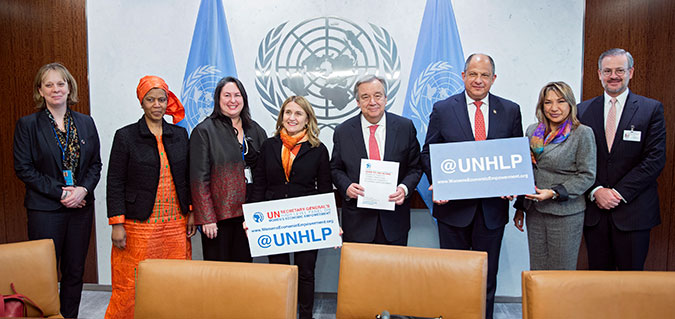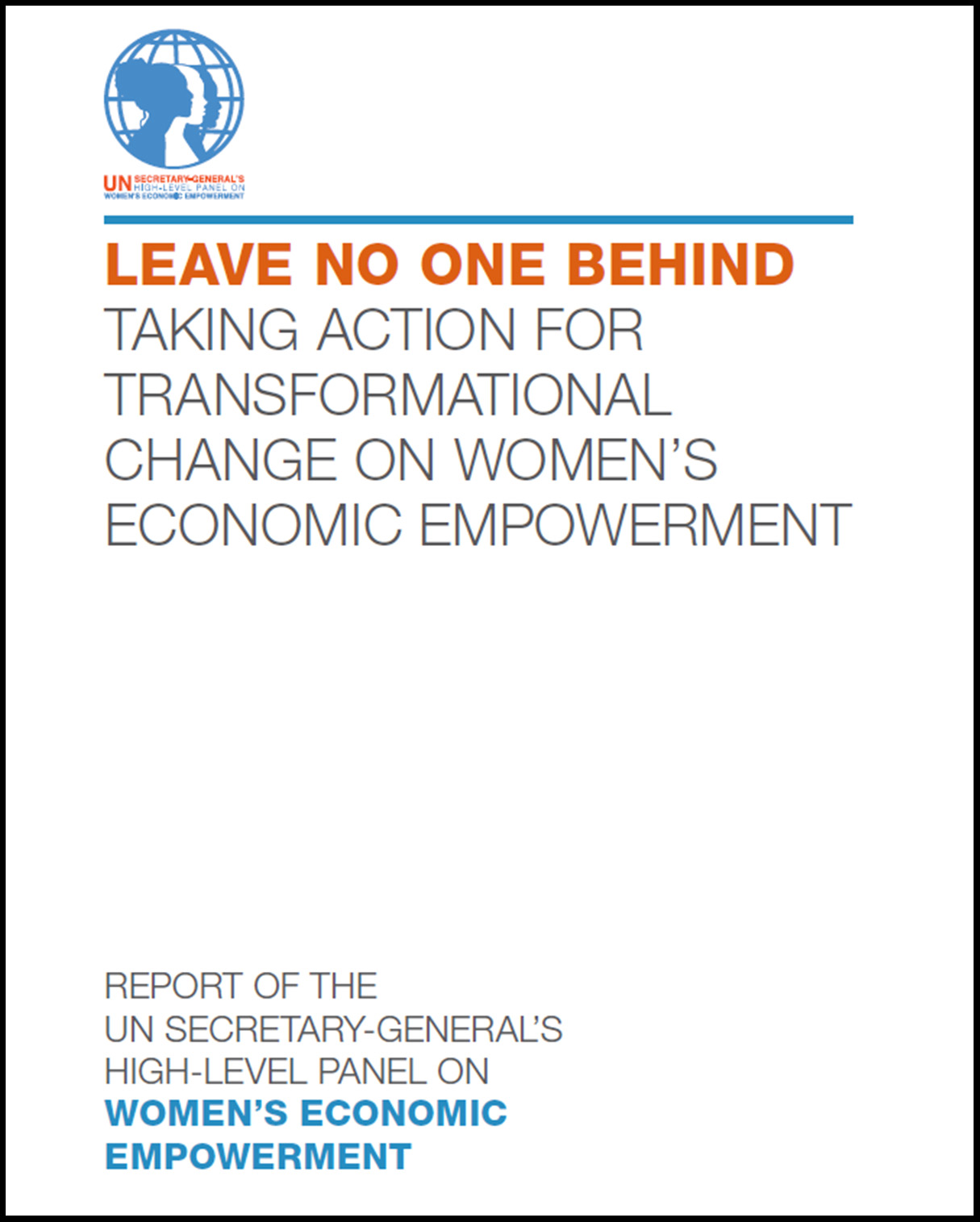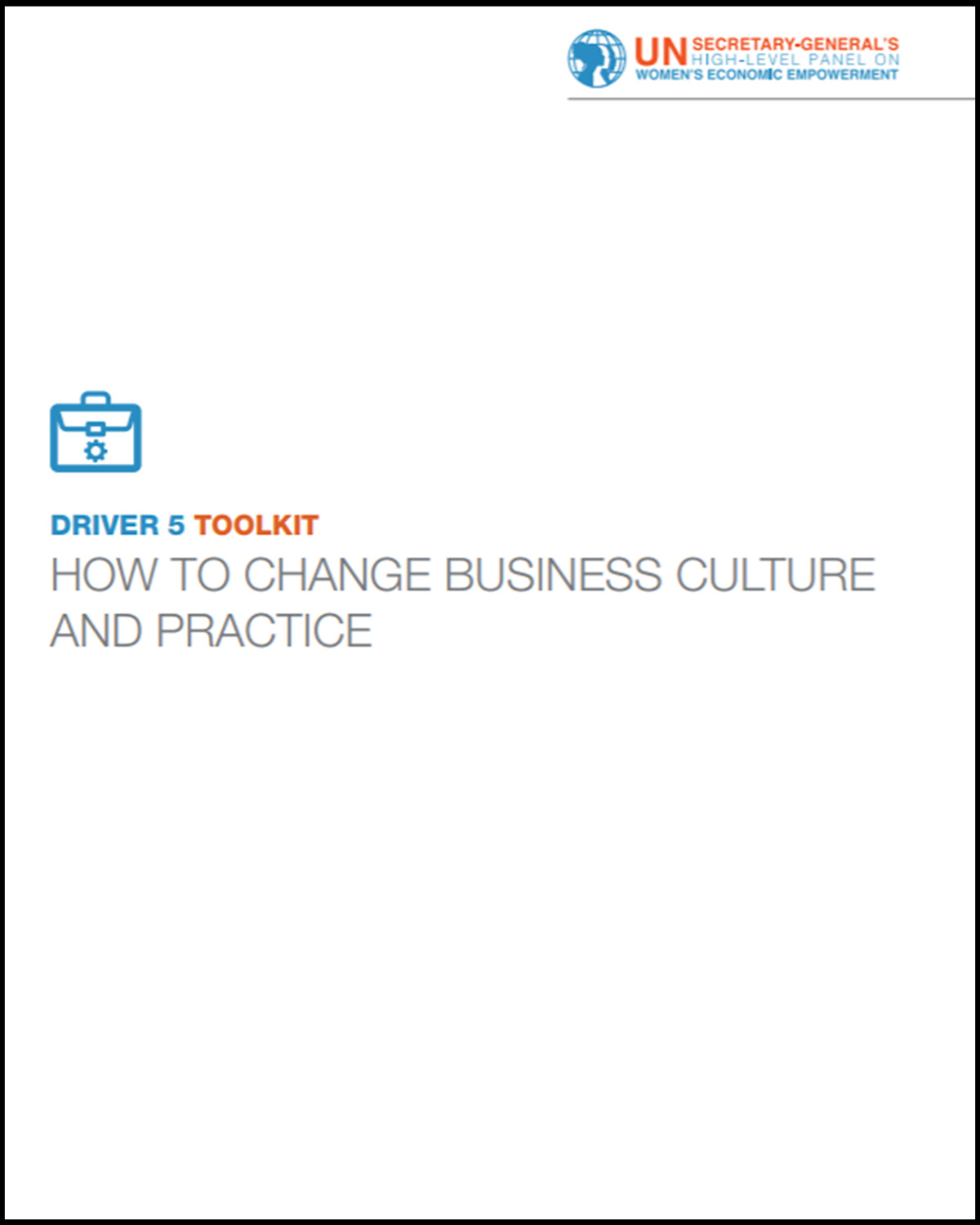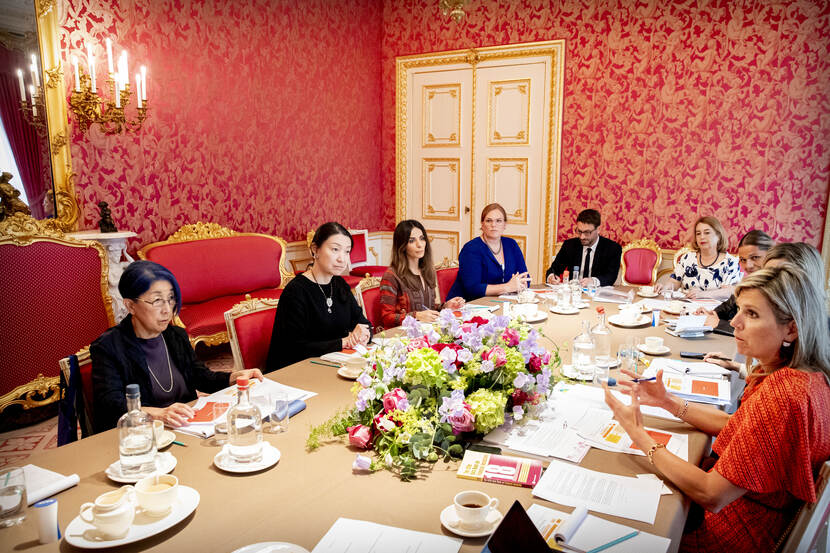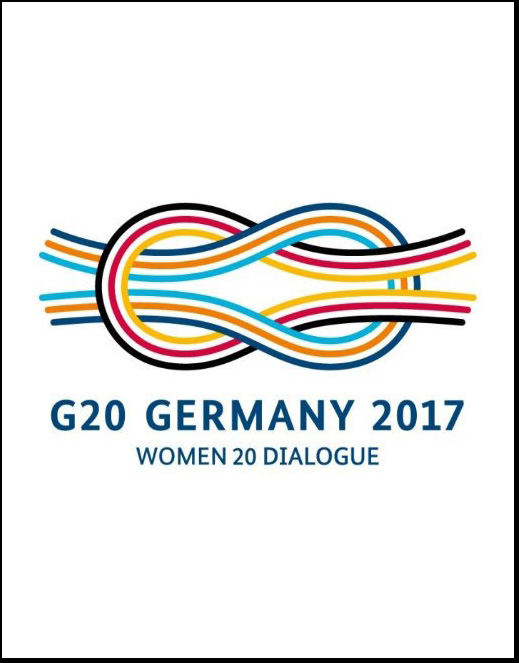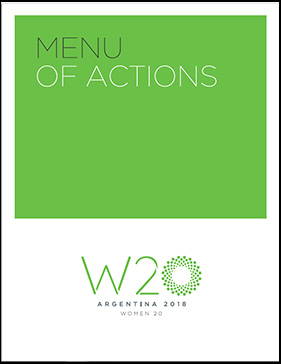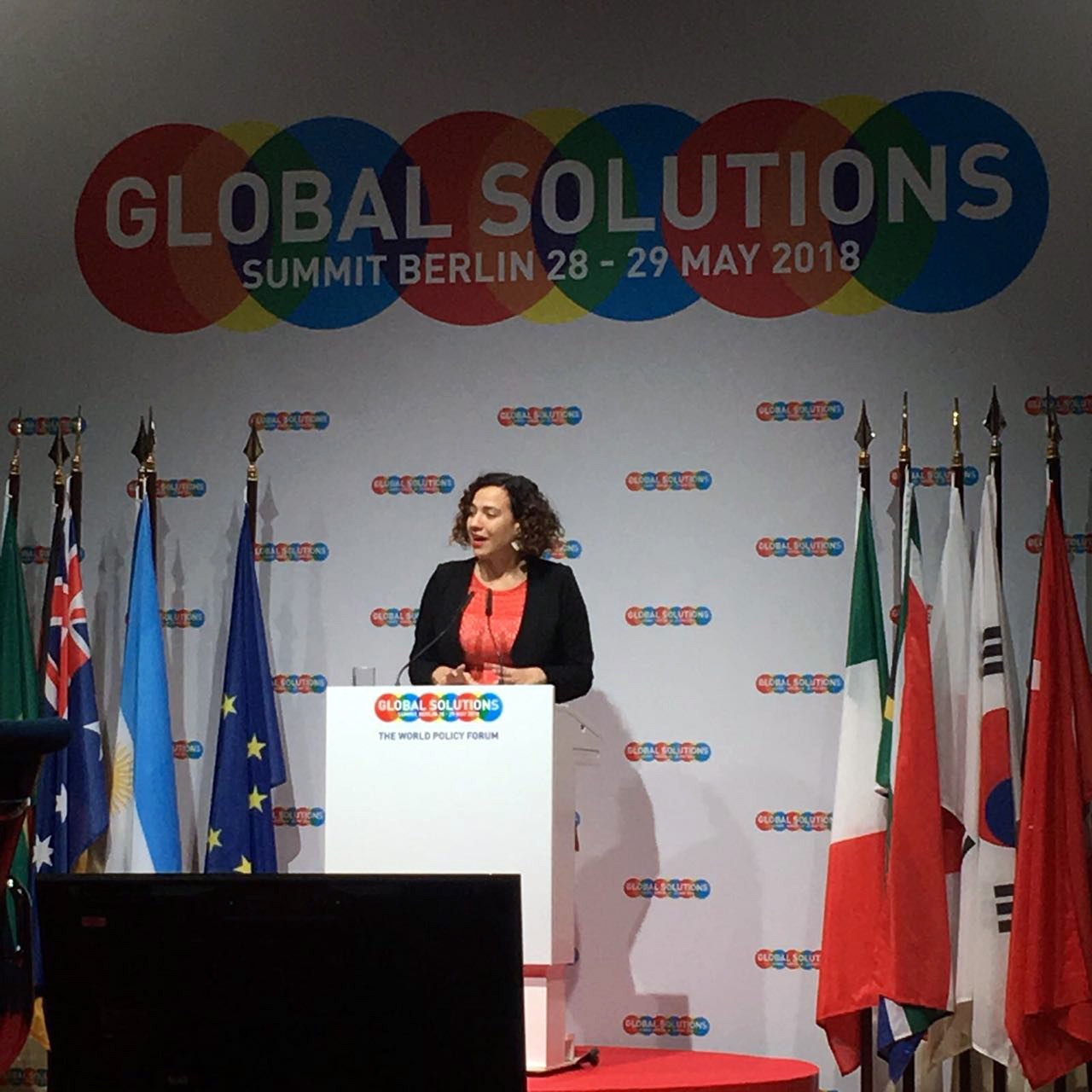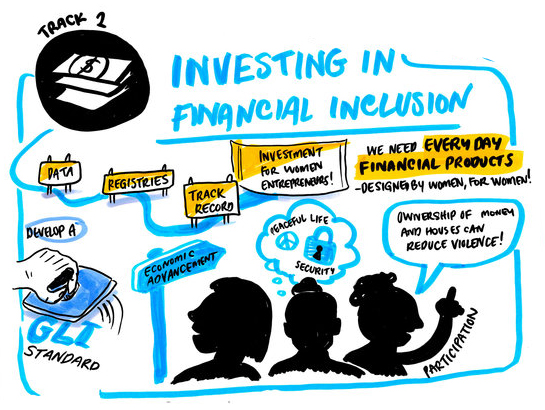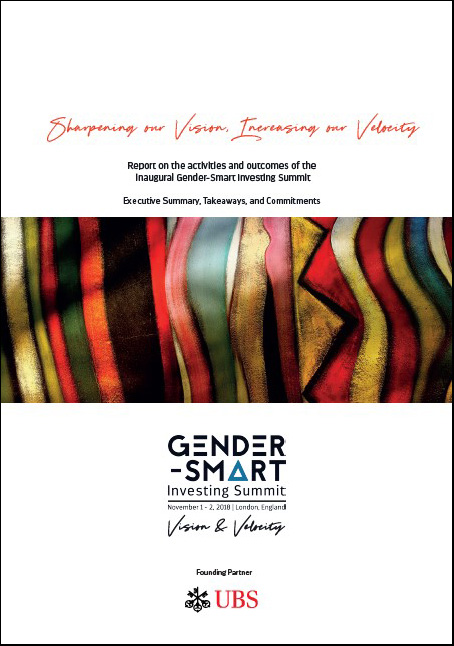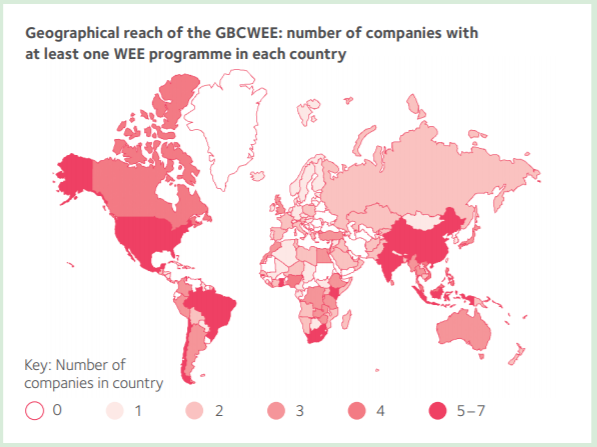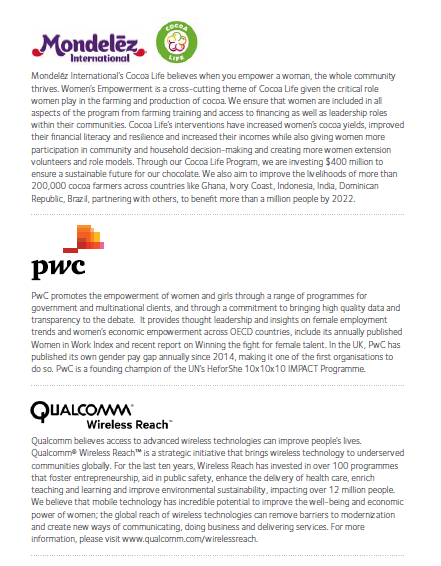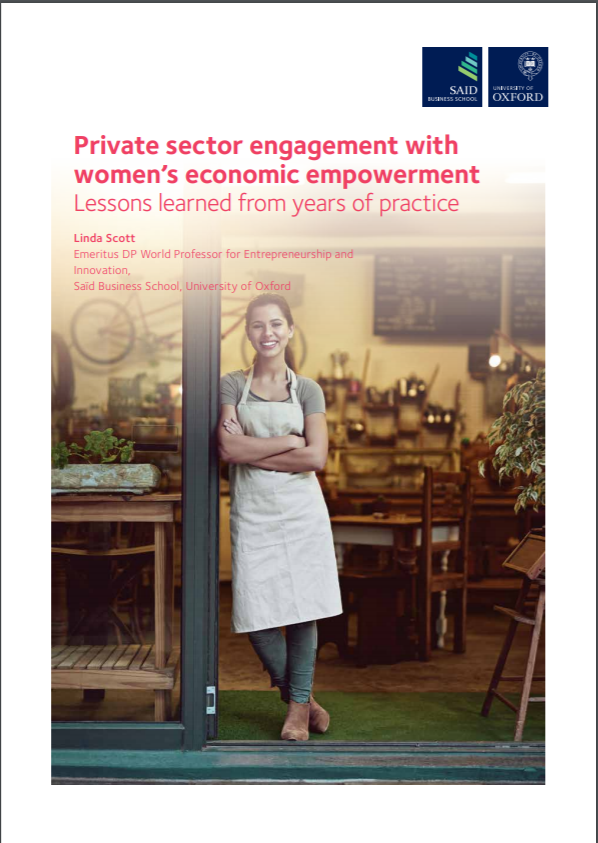Dr. Cynthia L. Drakeman is a global expert on women’s economic empowerment with particular expertise in gender-smart investing, evidence-based policy development, private sector best practices, and women’s entrepreneurship.
Cindy’s Work
This section features reports and documents that Cindy authored or contributed to significantly. Scroll down for all topics or jump to:
UN Secretary General’s High Level Panel on Women’s Economic Empowerment Women20 Think20 Gender Economic Equity Task Force
Gender-Smart Investing Summit Global Business Coalition for Women’s Economic Empowerment
UN Secretary General's High Level Panel
on Women's Economic Empowerment
on Women's Economic Empowerment
The UN Secretary General’s High Level Panel (HLP) was created by the Secretary General to set a global agenda for WEE. It was co-Chaired by His Excellency Luis Guillermo Solís, then President of Costa-Rica, and Simona Scarpaleggia, CEO of Ikea Switzerland. It was composed of 20 Members, representing the public sector, private sector, multilateral organizations, and civil society, and included Christine Lagarde, then Managing Director of the IMF, Her Excellency Sheika Lubna bint Khalid bin Sultan Al Qasmi, Minister of State for Tolerance of the UAE, Jim Yong Kim, then President of the World Bank, Phumzile Mlambo-Ngcuka, Executive Director of UNWomen, Her Excellency Samia Suluhu Hassan, Vice President of the Republic of Tanzania, and Elizabeth Vazquez, CEO of WEConnect.
Cindy was the lead author of the second report of the HLP, and wrote the discussion paper and tool kit for the Changing Business Culture and Practice working group, which includes recommendations, case studies, and supporting materials. Additionally, she edited all of the Panel’s other tool kits and working group papers. The first report, Leave No One Behind: A Call to Action for Gender Equality and Women’s Economic Empowerment is also an important resource that provides an extensive landscaping of the field of Women’s Economic Empowerment.
Women20
The Women20 (W20) is the G20’s official engagement group for women’s economic empowerment. It is composed of delegates from all 20 G20 economies (the world’s 19 largest countries + the EU). Collectively, these countries represent 89% of Gross World Product (GWP), 80% of global trade, and 2/3 of the world’s population. Convincing the G20 leadership to make commitments to women’s economic empowerment therefore has wide reaching impact, and also acts as a signal to other countries that women’s economic considerations are a priority. The priorities of the W20 are set by the W20 Presidency, which is chaired by delegates from the G20 host country and changes each year.
Cindy has been a US delegate to the W20 since 2017. In this capacity she attends the annual W20 Summit to finalize the Communique, which contains the official recommendations of the W20 and is formally handed to the G20 host country’s head of state. She also leads or participates in discussions with delegates throughout the year, drafts language for the communiques, and contributes content for the policy papers and menus of action, which provide examples, resources, and supporting information to help countries implement the W20’s recommendations.
To learn more about the W20 and access additional policy papers and concept notes please visit the following websites:
Think20 Gender Economic Equity Task Force
The Think20’s Gender Economic Equity Task Force was created to mainstream gender throughout the G20’s engagement groups. Launched during the Argentinian Presidency in 2018 it engaged delegates from all over the world to participate in drafting policy papers with concrete recommendations to advance gender economic equity. “[T]he task force [was] comprised of 56 researchers from 43 think tanks in 19 countries from around the globe. Out of the 56 researchers and experts, 50% of them were based in the Global South, and 92% of them were women.” As a member of this task force, Cindy contributed to the paper on labor inclusion: “Achieving ‘25x25’: Actions to make Women’s Labor Inclusion a G20 Priority” and did a peer review of the paper about policies for mainstreaming gender.
All of the 2018 T20 GEE papers can be found here.
Gender-Smart Investing Summit
The Gender-Smart Investing Summit was the first convening of gender lens investors from every assett class. It took place in London in November, 2018 and included 300 delegates from across the finance community, every region of the world, and 42 countries. It was 81% women and 19% men with the investors representing $14T assets under management (AUM). As the senior content and research adviser Cindy helped design the Summit program, identified speakers, and conducted a series of interviews with investors and stakeholders committed to using finance to advance women’s economic empowerment. She also wrote the post-Summit content report and the post-Summit executive summary.
During the Summit, delegates made financial commitments to gender-smart investing totaling USD $9B, and launched numerous reports, programs, and tools. Since the summit, hundreds of millions of additional investment funding has been pledged by Summit participants and those who were inspired by the outcomes of the Summit.
You can learn more about the Gender-Smart Investing Summit here.
Global Business Coalition for Women's Economic Empowerment
In 2013, Cindy helped Professor Linda Scott, then DP World Chair of Entrepreneurship and Innovation at The University of Oxford’s Saïd Business School, establish a group of ten of the world’s largest multinational corporations working on women’s economic empowerment in their business practices and supply chains. This group became the Global Business Coalition for Women’s Economic Empowerment (GBC for WEE), and today is composed of CocaCola, ExxonMobil, Goldman Sachs 10,000 Women, Marks & Spencer, the Mastercard Center for Inclusive Growth, Mondelēz, Pricewaterhouse Coopers, and Qualcomm.
In 2017, Professor Scott wrote a report detailing the GBC for WEE’s efforts and insights - Private Sector Engagement with Women’s Economic Empowerment: Lessons learned from years of practice, which was edited by Cindy and published by Oxford. You can read Professor Scott’s blog about the report launch here.



